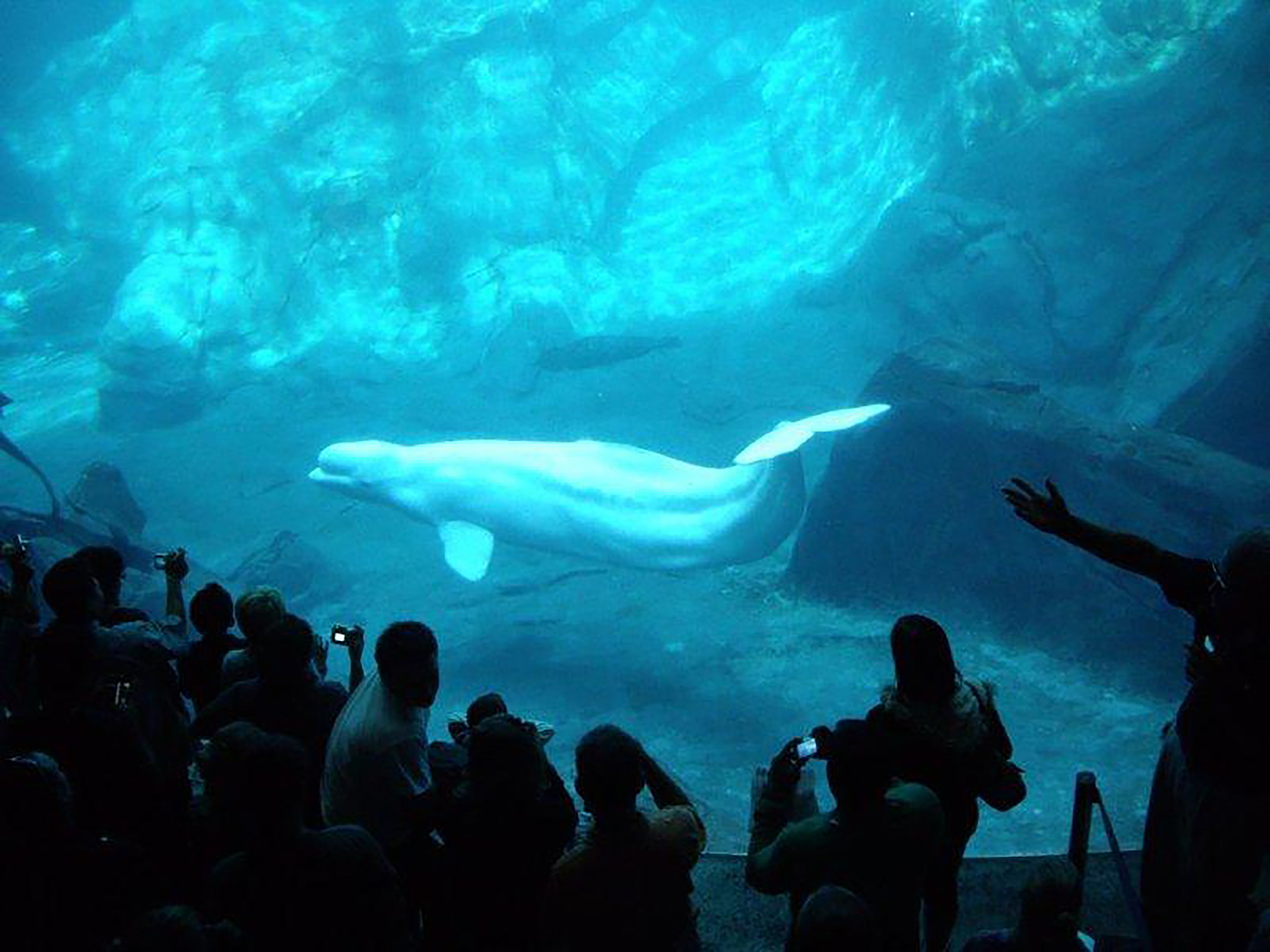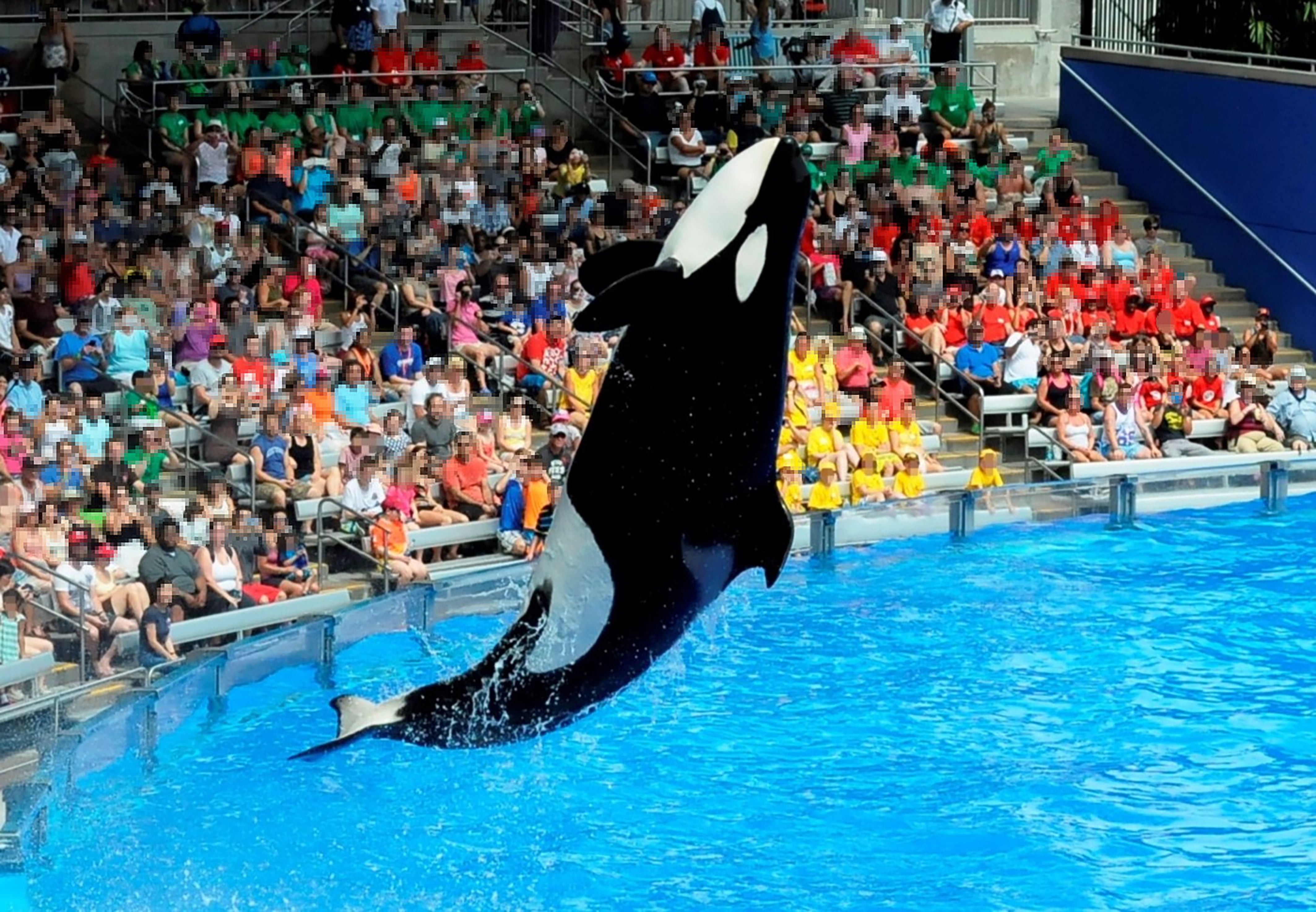Holidaymakers warned to avoid ‘miserable’ attractions in France and Spain
A charity has told the public to avoid these holiday spots

Sunseekers heading on winter holidays are being urged against buying tickets for attractions where whales, dolphins and porpoises are forced to perform.
It comes a charity warned that more than 3,600 cetaceans live in captivity across the world for human entertainment.
The charity Born Free said these complex and intelligent animals live a “miserable existence” in captivity, where they are kept in restrictive conditions such as chemically treated pools, overcrowded tanks or shallow sea pens.
The marine mammals are then made to perform unnatural and repetitive tricks in front of crowds of tourists often multiple times a day and some are further exploited by forced interactions with visitors, swimming with tourists, or posing for souvenir photos and selfies.
Last year, former SeaWorld orca Keto, who hit world headlines in 2009 after an incident where he killed his trainer, died prematurely at Loro Parque, a large zoo and marine park in Tenerife.
While the Marineland theme park in Antibes, France, closed last week because of a recent law banning marine mammal shows, its plans to transfer the two killer whales to Japan prompted anger among campaigners over Tokyo’s lax animal welfare laws.
The campaigners say this comes as a “stark contrast” to their existence in the wild, where the animals live in closely bonded family groups, swim more than 100 miles a day and dive to depths of 300 metres.
While the harm caused to captive marine mammals may not be immediately evident to holidaymakers visiting the attraction for only a few hours, Born Free warned of the physical and psychological suffering they nonetheless undergo in these environments.
This includes premature death, reduced resistance to disease, tooth trauma from biting and hitting the sides of concrete pools and irritation of skin and eyes from chemically treated water.
There is high infant mortality and reduced survival rates among the captive animals, the charity said, adding that animals are often forced to breed or subjected to artificial insemination and are drugged to control abnormal behaviour caused by boredom and stress.

Whales, dolphins and porpoises can also sustain injuries caused by interactions with trainers and performing tricks, as well as from human fingernails, jewellery, make-up, perfume and sunscreen.
Sarah Jefferson, Born Free’s captivity campaigns information co-ordinator said: “We’re calling on the public not to support the suffering of captive cetaceans on their holidays.
“Whales and dolphins in captivity face a miserable existence in barren tanks and sea pens, forced to interact with humans – in stark contrast to the rich and complex lives they live in the wild.”
The charity, which successfully campaigned for the end of captive cetaceans in the UK in the early 1990s, said there are still more than 300 living in captivity for human entertainment in European Union countries, citing Spain in particular, where more than 100 whales, dolphins and porpoises exist in confinement.
As part of its Tank-Free campaign, Born Free is calling on British tourists to avoid booking captive cetacean activities and to voice their concerns to travel companies profiting from them as well as operators, hotels or businesses advertising such attractions.

People can equally notify the charity if they see dolphins and whales in captivity through its Raise the Red Flag platform, which helps the campaigner’s work to engender change and improve animal welfare.
Elsewhere, the campaigners are directly urging travel companies and tour operators worldwide to end the promotion and selling of excursions that put financial gain above animal welfare.
It is also calling on countries to phase out the keeping of captive cetaceans by introducing legislation banning the practice, including measures to end animal imports, breeding and the building of new captive facilities.
Join our commenting forum
Join thought-provoking conversations, follow other Independent readers and see their replies
Comments
Bookmark popover
Removed from bookmarks